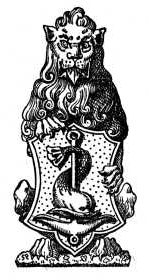Chiswick Press

The Chiswick Press was founded by Charles Whittingham I (1767-1840) in 1811. The management of the Press was taken over in 1840 by the founder's nephew Charles Whittingham II (1795-1876). The name was first used in 1811, and the Press continued to operate until 1962. C. Whittingham I gained notoriety for his popularly priced classics, but the Chiswick Press became very influential in English printing and typography under C. Whittingham II who, most notably, published some of the early designs of William Morris.[1] The Chiswick Press deserves conspicuous credit for the reintroduction of quality printing into the trade in England when in 1844 it produced "The Diary of Lady Willoughby".
The typeface Basle Roman was cut for the Chiswick Press in 1854 by William Howard and cast at his foundry in Great Queen Street.[2]
References
- ↑ Harrod's librarians' glossary and reference book. 9th ed. (Aldershot: Gower, 2000) ; Ing, Janet Thompson. Charles Whittingham the Younger and the Chiswick Press, 1852-59. Thesis (Ph. D.)--University of California, Berkeley, 1985.
- ↑ Jaspert, W. Pincus, W. Turner Berry and A.F. Johnson. The Encyclopedia of Type Faces. Blandford Press Lts.: 1953, 1983, ISBN 0-7137-1347-X, p. 17